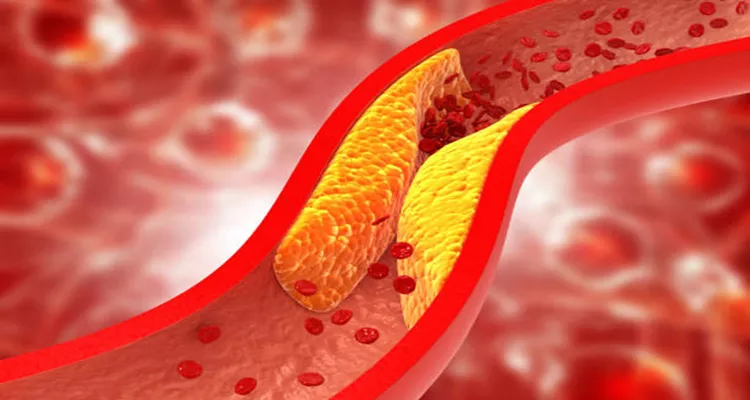Cardiovascular diseases (CVDs) remain a leading cause of morbidity and mortality worldwide. Among the myriad conditions that fall under the umbrella of CVDs, myocarditis stands out as a challenging and often misunderstood entity. Myocarditis, characterized by inflammation of the myocardium, can have profound effects on cardiac function. One area of ongoing investigation is the potential impact of myocarditis on blood pressure regulation. This article aims to delve into this topic, exploring the relationship between myocarditis and blood pressure and shedding light on the clinical implications of this connection.
Understanding Myocarditis:
Before delving into the specific relationship with blood pressure, it’s crucial to understand the basics of myocarditis.
Myocarditis refers to inflammation of the heart muscle, typically caused by viral infections, autoimmune processes, or toxic exposures. The inflammatory process can lead to myocardial damage, compromising cardiac function and potentially triggering a cascade of pathological events.
SEE ALSO: How to Strengthen Your Heart And Lungs with Exercise
Clinical Presentation and Diagnosis:
Myocarditis can present with a wide range of symptoms, from mild fatigue and chest discomfort to fulminant heart failure and cardiogenic shock. Diagnosis often involves a combination of clinical assessment, laboratory testing (such as cardiac biomarkers), imaging studies (such as echocardiography and cardiac MRI), and endomyocardial biopsy in select cases. Early recognition and intervention are critical in managing myocarditis effectively.
Myocarditis and Blood Pressure:
The relationship between myocarditis and blood pressure is multifaceted and complex. Several mechanisms may contribute to alterations in blood pressure in the setting of myocarditis:
Inflammatory Response: The inflammatory process inherent in myocarditis can directly impact blood vessel function and vascular tone. Cytokines, chemokines, and other inflammatory mediators released during myocardial inflammation can lead to endothelial dysfunction and impaired vasodilation, potentially resulting in hypertension or hypotension depending on the specific pathophysiological processes involved.
Cardiac Pump Function: Myocarditis can compromise cardiac pump function, leading to reduced cardiac output and subsequent changes in blood pressure regulation. In severe cases, myocarditis-induced heart failure can result in systemic hypoperfusion and hypotension, necessitating aggressive hemodynamic support.
Autonomic Nervous System Involvement: The autonomic nervous system plays a crucial role in regulating blood pressure. Myocarditis can disrupt autonomic control mechanisms, leading to dysregulation of sympathetic and parasympathetic influences on the cardiovascular system. This dysregulation can manifest as fluctuations in blood pressure, orthostatic hypotension, or other autonomic disturbances.
Secondary Effects: Myocarditis-related complications, such as arrhythmias or myocardial ischemia, can indirectly impact blood pressure through their effects on cardiac function and hemodynamics. For example, ventricular arrhythmias in the context of myocarditis can cause abrupt changes in blood pressure, posing challenges in management and requiring prompt intervention.
Clinical Implications And Management:
The impact of myocarditis on blood pressure has significant clinical implications. Patients with myocarditis may present with a spectrum of hemodynamic profiles, ranging from hypertensive crises to cardiogenic shock. As such, careful monitoring of blood pressure is paramount in the management of myocarditis patients, especially in the acute phase.
Management strategies for myocarditis-related blood pressure disturbances include:
Optimizing Fluid Status: Maintaining euvolemia is crucial in myocarditis patients to ensure adequate cardiac preload and optimize cardiac output. Close monitoring of fluid status and judicious use of diuretics or intravenous fluids are essential components of management.
Hemodynamic Support: In cases of myocarditis-induced cardiogenic shock or severe hemodynamic instability, advanced hemodynamic support may be necessary. This can include vasopressor therapy, inotropic agents, mechanical circulatory support (such as intra-aortic balloon pump or extracorporeal membrane oxygenation), and, in extreme cases, consideration of heart transplantation.
Anti-inflammatory Therapy: Given the inflammatory nature of myocarditis, anti-inflammatory strategies such as corticosteroids, immunomodulators, or targeted biological agents may be employed in specific cases. These therapies aim to dampen the inflammatory response and potentially mitigate myocardial damage, with potential implications for blood pressure regulation.
Arrhythmia Management: Addressing arrhythmias promptly is crucial in myocarditis management, as arrhythmic disturbances can significantly impact hemodynamics and blood pressure stability. Pharmacological antiarrhythmic agents, electrical cardioversion, or implantable devices (such as pacemakers or defibrillators) may be utilized as indicated.
Long-Term Considerations:
In addition to acute management strategies, long-term considerations are essential in myocarditis patients, including blood pressure monitoring, ongoing cardiac surveillance, risk factor modification, and cardiac rehabilitation. Close follow-up with a multidisciplinary team, including cardiologists, immunologists, and infectious disease specialists, is often necessary to optimize outcomes and mitigate long-term cardiovascular sequelae.
Conclusion:
In conclusion, myocarditis can have a profound impact on blood pressure regulation through various mechanisms, including inflammation-induced vascular dysfunction, cardiac pump impairment, autonomic dysregulation, and secondary complications. Understanding these complex interactions is crucial in the comprehensive management of myocarditis patients, with a focus on tailored hemodynamic support, anti-inflammatory strategies, arrhythmia management, and long-term cardiac care. Further research is needed to elucidate the precise mechanisms linking myocarditis to blood pressure disturbances and to refine therapeutic approaches in this challenging clinical context.

